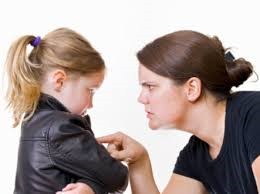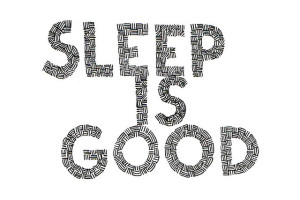Have you even had to think about it? Do you think the certain style has affected you in any sort of way? Well there’s a chance it has. Different parenting styles whether its strict or easy have been shown to effect kids behavior and especially there performance in school. I wanted to see if there were differences between parenting styles and compare them against the performance of their kids.
In one research done they surveyed 148 high schools across demographics and races. The grade level of the students also varied from 10th-12th graders. They tested the students with a questionnaire to measure the students’ perception of their parents parenting style and The Intrinsic and Extrinsic Orientation scale was used to measure the students’ motivation. The conclusions were that different parenting styles correlate but are not a causation of the academic achievement of a student. Just as we learned in class on correlation, the researchers found that the parenting styles that were motivating and positive resulted in their kids have higher academic success. These kids also set higher goals for themselves and had more self-confidence. 
So, here is a little psych100 background for everyone. There are three categories of parenting styles that psychologists have put parents under. Authoritarian, where parents impose rules and expect strict obedience. It stems from the “because I said so” line. Authoritative parenting is where the parents are demanding but also responsive and rewarding to there kids. They compromise and listen. Permissive parenting submits to the child’s demands. So how does this relate to academic performance/success? In this research done they tested kids from with parents from each of these categories. They found that authoritarian and permissive parenting styles negatively affected kids grades and were associated with those bad grades. Families with the authoritative parenting style have the average of the highest grades while the other families with the other parenting styles had the lowest. This really shows how much parenting can affect a kid’s grade.
The relationship with the parent and also the style can have a negative effect on a kid along with a positive. In this study it showed that the authoritarian (strict and unengaged) and permissive (adolescent decides) parenting styles led to the kids being the least well adjusted, having depressive symptoms and acting out.
It is pretty evident that there is a correlation between parenting styles and students’ academic pressure. One article states, “When children consider their parents to be legitimate authority figures, they trust the parent and feel they have an obligation to do what their parents tell them to do.” This makes sense compared to the previous studies. Children feel more responsibility to their parents when they act like a combination of all three parenting styles, A little demanding, a little giving into the children’s demand, and a little rewarding. This is proven to be the best method for parents. Parents who tend to act like this have children who respect them more and feel more responsible for doing well in school than feeling pressured.
Some questions one should be thinking about after reading this blog are what is your parent’s parenting type? Are they more Authoritarian, Permissive, or Authoritative? Do you feel pressured to do well in school? Or do you feel that you owe it to your parent’s to do well in school?





 nes across a couple of years. They found that there was a higher percentage of woman with blonde hair featured in the magazine than any other color. After reading these studies, it made me think more about this stereotype. It seems to me that people don’t take blonde haired woman seriously. People see them more as models or designers instead of CEOs or managers.
nes across a couple of years. They found that there was a higher percentage of woman with blonde hair featured in the magazine than any other color. After reading these studies, it made me think more about this stereotype. It seems to me that people don’t take blonde haired woman seriously. People see them more as models or designers instead of CEOs or managers. tart to wonder what would happen if someone who is addicted to coffee stopped drinking it for a period of time. Would they feel a sense of withdrawal? Or will they be perfectly fine without it?
tart to wonder what would happen if someone who is addicted to coffee stopped drinking it for a period of time. Would they feel a sense of withdrawal? Or will they be perfectly fine without it? ent with people you have just met.
ent with people you have just met.
 Four students
Four students Iron. Learning of all of these benefits of dark chocolate is making me in the mood for some chocolate! But I know I have to limit myself because even though dark chocolate is not terrible for you, you still have to limit yourself because eating it in large amounts will make it bad for you.
Iron. Learning of all of these benefits of dark chocolate is making me in the mood for some chocolate! But I know I have to limit myself because even though dark chocolate is not terrible for you, you still have to limit yourself because eating it in large amounts will make it bad for you. egatively to the cold weather while others are the complete opposite. I am more of a summer person. By going to the beach and pools, I can stay cool even in the heat of the summer. I like to play basketball and soccer, so I am always active in the summer as well.
egatively to the cold weather while others are the complete opposite. I am more of a summer person. By going to the beach and pools, I can stay cool even in the heat of the summer. I like to play basketball and soccer, so I am always active in the summer as well. 2005 and 2012. Out of the 20,000 people, just over one third had met their spouse online. Also, those marriages were 25 perfect more likely to last than those of couples who met the traditional way.
2005 and 2012. Out of the 20,000 people, just over one third had met their spouse online. Also, those marriages were 25 perfect more likely to last than those of couples who met the traditional way. social life, it is just not possible to get that much sleep as well as completing everything else.
social life, it is just not possible to get that much sleep as well as completing everything else. is there is an increase in cyber bullying. This is becoming more popular because bullies find it easier to harass someone anonymously on the Internet than doing it face to face. A common thing
is there is an increase in cyber bullying. This is becoming more popular because bullies find it easier to harass someone anonymously on the Internet than doing it face to face. A common thing  d to dreams with more negative emotional content.” Alcohol disrupts ones sleeping patterns and therefore interrupts ones dreaming. Marijuana and other drugs also have the same effect as alcohol on dreams.
d to dreams with more negative emotional content.” Alcohol disrupts ones sleeping patterns and therefore interrupts ones dreaming. Marijuana and other drugs also have the same effect as alcohol on dreams. y blog, I am listening to music.
y blog, I am listening to music.